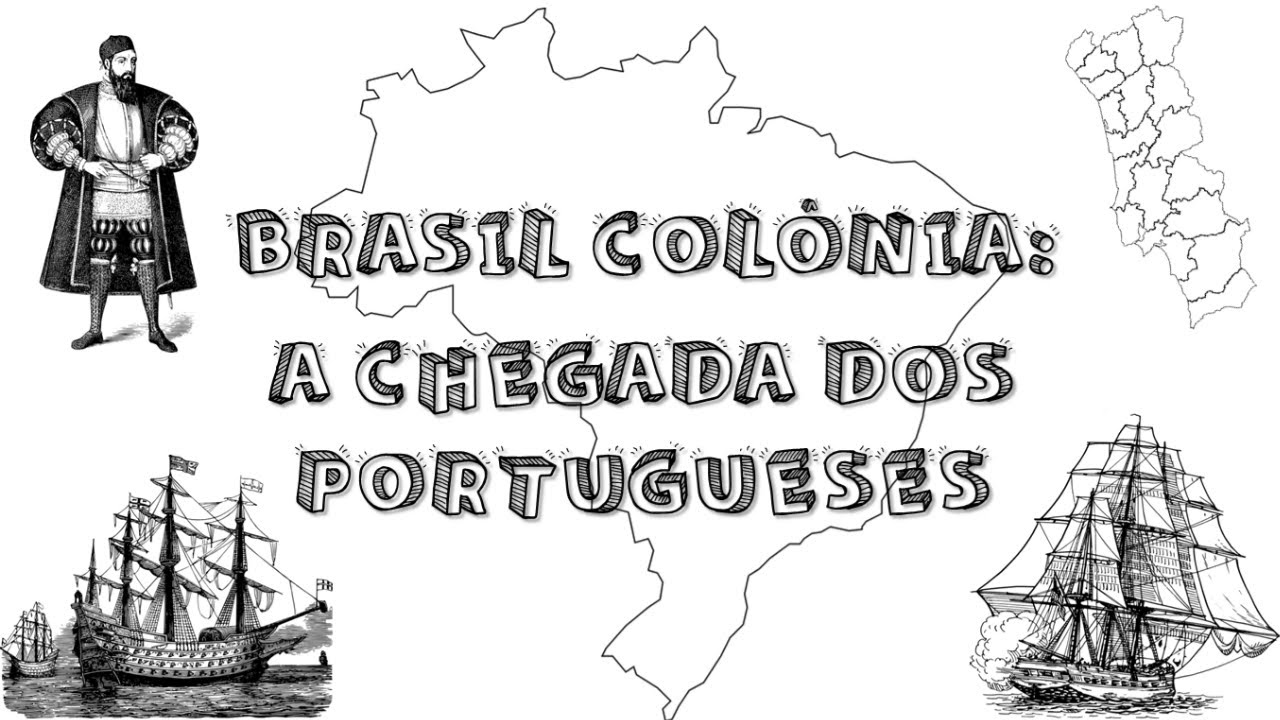BRASIL PRÉ-COLONIAL - O "DESCOBRIMENTO" DO BRASIL - RESUMO DESENHADO
Summary
TLDRThe video explains the arrival of the Portuguese in Brazil in 1500, led by Pedro Álvares Cabral. It discusses how Portugal's geographical advantages, commercial goals, and technological advancements made them pioneers in navigation. The video also explores the theory of a 'discovery' of Brazil, debunking claims of prior knowledge by other nations. The initial peaceful interactions with indigenous tribes and the establishment of trade, especially in Brazilwood, are highlighted. The video concludes with the beginning of formal colonization in 1535, as Portugal faced external threats and began to strengthen its hold on the region.
Takeaways
- 😀 The Portuguese expedition led by Pedro Álvares Cabral arrived in Brazil on April 22, 1500, marking the beginning of Portuguese involvement in the region.
- 😀 The term 'discovery' is problematic as indigenous peoples had already inhabited Brazil for thousands of years, with distinct cultures and social structures.
- 😀 Portugal's maritime exploration was driven by the need for new trade routes to Asia following the fall of Constantinople and the blockade of traditional spice routes by the Ottoman Empire.
- 😀 Vasco da Gama's successful voyage to India in 1498 established a crucial trade route and set the stage for Portugal's dominance in global exploration.
- 😀 Pedro Álvares Cabral was sent to explore further territories after Vasco da Gama's success, reaching Brazil by accident while following Vasco da Gama’s path to India.
- 😀 Upon landing in Brazil, Cabral's expedition encountered indigenous peoples, leading to initial peaceful exchanges and the practice of *escambo* (trade).
- 😀 The Portuguese initially focused on trading *pau-brasil* (Brazilwood), a highly valued commodity in Europe, rather than pursuing colonization immediately.
- 😀 Rival European powers, especially the French, began to encroach on Brazilian territory, prompting Portugal to establish a more permanent presence.
- 😀 In 1530, Martim Afonso de Souza was sent to Brazil to initiate the first efforts of colonization, including the distribution of land grants (*sesmarias*) to encourage settlement and exploitation of resources.
- 😀 The initial positive interactions between the Portuguese and indigenous people were later overshadowed by exploitation and conflict as the Portuguese sought to control Brazil's resources.
Q & A
What event marked the arrival of the Portuguese in Brazil?
-The Portuguese arrived in Brazil on April 22, 1500, with the expedition led by Pedro Álvares Cabral.
What was the initial name given to the land the Portuguese discovered?
-The land was initially called 'Terra de Vera Cruz' (Land of the True Cross).
Why is the term 'discovery' controversial when referring to the arrival of the Portuguese in Brazil?
-The term 'discovery' is controversial because native populations had been living in Brazil for thousands of years, with their own cultures, languages, and social structures, long before the Portuguese arrival.
How did Portugal become the leader in the Age of Exploration?
-Portugal became a leader in exploration due to several factors, including its early unification, political stability, and technological advances in navigation, which allowed it to establish a strong maritime presence.
What was the significance of Vasco da Gama's voyage in 1497?
-Vasco da Gama's voyage was significant because he navigated a sea route to India around Africa, which opened up direct trade with the East, providing Portugal with access to valuable spices.
What was the mission of Pedro Álvares Cabral's expedition?
-Pedro Álvares Cabral's expedition was initially intended to follow the same route to India as Vasco da Gama, but it ended up discovering Brazil in April 1500.
Why did the Portuguese initially not show much interest in colonizing Brazil?
-The Portuguese were initially not interested in colonizing Brazil because they found little in the way of precious metals or spices. Their primary focus was on trade with India.
How did the name 'Brazil' come about?
-The name 'Brazil' was derived from the 'pau-brasil' tree, a valuable source of red dye, which attracted Portuguese interest in the region.
What was the role of the indigenous people in the early interactions with the Portuguese?
-The indigenous people, particularly the Tupiniquins, engaged in friendly exchanges with the Portuguese, offering gifts in the early stages of contact, which was part of a practice known as 'escambo' (barter).
What actions did Portugal take to defend Brazil from European rivals?
-Portugal sent naval expeditions to guard Brazil's coastline against the French and other European powers who were attempting to exploit the land's resources, especially timber and indigenous labor.
Outlines

This section is available to paid users only. Please upgrade to access this part.
Upgrade NowMindmap

This section is available to paid users only. Please upgrade to access this part.
Upgrade NowKeywords

This section is available to paid users only. Please upgrade to access this part.
Upgrade NowHighlights

This section is available to paid users only. Please upgrade to access this part.
Upgrade NowTranscripts

This section is available to paid users only. Please upgrade to access this part.
Upgrade NowBrowse More Related Video
5.0 / 5 (0 votes)





